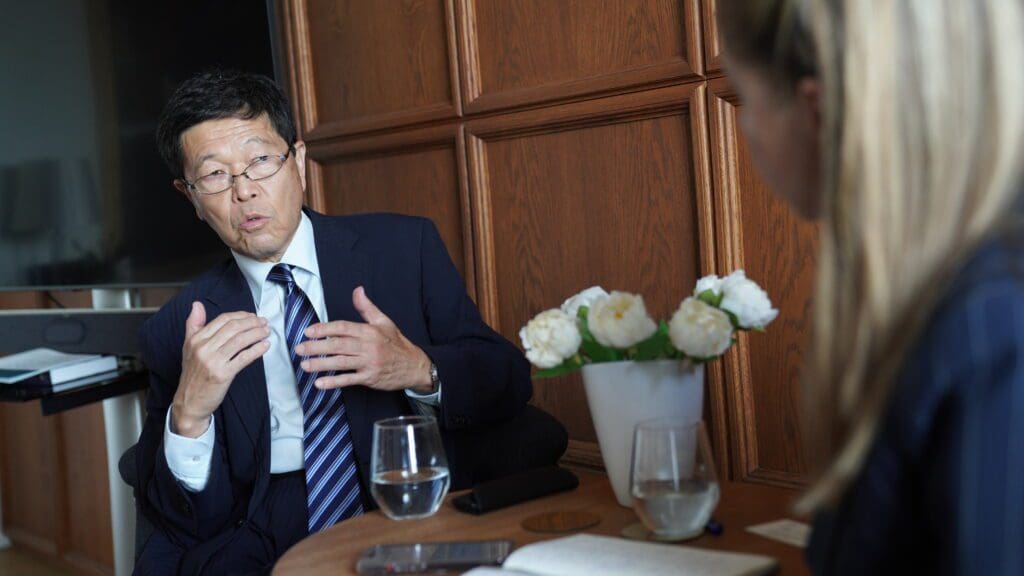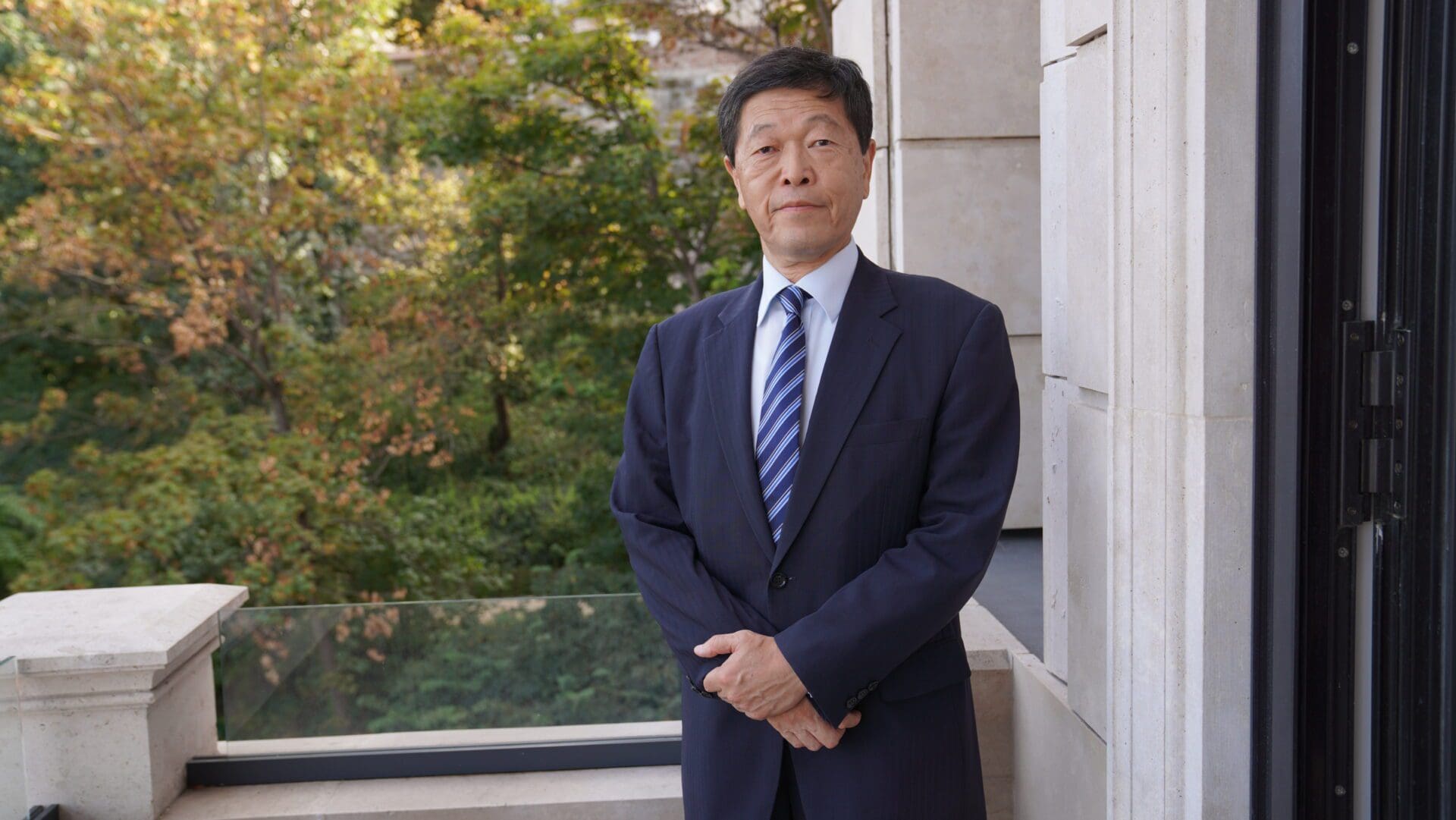Professor Hideshi Tokuchi has served as President of the Research Institute for Peace and Security (RIPS) since June 2021. He is also a visiting professor at the National Graduate Institute for Policy Studies, Tokyo. Professor Tokuchi served as the nation’s first-ever Vice-Minister of Defence for International Affairs. The distinguished Japanese scholar delivered a lecture on Japan-NATO cooperation at the Third Danube Geopolitical Summit organized by the Danube Institute earlier this month. Below is the interview he granted to Hungarian Conservative.
***
How has your time been in Hungary? Is this your first visit here?
Budapest is a very beautiful city. This is my first visit to Hungary, and I find it incredibly captivating. The cuisine, the wines, the beers, the picturesque landscapes, and the informative and educational conference—all have left a favourable impression. Such interactions are immensely valuable for both the European and Japanese sides.
As we contemplate the path ahead, Hungary remains steadfast in its commitment to reach the threshold of two per cent of its GDP being dedicated to defence by 2024. Many other nations have made similar pledges. But can such a trajectory contribute to a peaceful world? What are your predictions for the future?
I can’t predict future events. However, I harbour no overly optimistic assumptions concerning the international community’s future. Presently, we face numerous threats, including non-traditional ones like natural disasters and climate change. Moreover, both East Asian countries—like we in Japan—and NATO nations confront traditional threats, particularly from Russia. Addressing these challenges necessitates joint efforts and synergizing the endeavours of the respective nations. To achieve this objective,
setting a common goal, especially quantifiable targets, is helpful.
In that sense, aiming for two per cent of GDP appears reasonably sound. Nevertheless, NATO countries must continue to invest in defence persistently.
Would you mind explaining the basis for this viewpoint?
The establishment and enhancement of a robust defence organization is a gradual process and requires sustained investment. It cannot be done just in one day, it takes a long time. Hence, maintaining consistent efforts to invest in defence is paramount. And by doing so, the NATO side will be able to establish enough deterrence against threats, although it’s important to note that opposing sides are also investing in their military capabilities. So, we can’t guarantee that the two per cent of GDP will be enough. But anyway, in order to create synergy among the NATO members, achieving a common goal based on the basic agreement is very important.

Balázs Orbán, the political director for Prime Minister Viktor Orbán, has proposed a strategy—a Hungarian globalization strategy. This model, based on connectivity, aims to present an alternative to the prevailing liberal world order and the bloc-centric model of globalization. It emphasizes that a country, in this context Hungary, should actively nurture connections with as many countries and market players across the globe as possible. What is your perspective on this proposal?
In today’s globalized world, no single nation can secure its own prosperity and security in isolation. International partnerships are paramount. Economic strength holds a significant position in the comprehensive national power of any nation. Hence, fostering economic cooperation with other nations is crucial.
Even with China?
Engaging with China holds immense significance in this context. Unlike the former Soviet Union during the Cold War era, China is deeply integrated into the global economy.
Therefore, engagement with China is inevitable, albeit not without risks.
All countries, including your country and mine, must possess sufficient resilience to safeguard against these risks. As long as countries, including ours, demonstrate adequate resilience to mitigate risks associated with China, such engagement can be managed effectively.
Moving on to the ongoing Russo-Ukrainian conflict, which directly impacts Hungary due to Ukraine’s adjacency: what are your projections for the conclusion of this war?
Russia denies Ukraine’s statehood. Consequently, the armed conflict between Ukraine and Russia transcends a mere border dispute. It is a grave military conflict, and Russia perpetrates unprovoked aggression against Ukraine. Given this scenario, the war is likely to persist for a considerable duration.
If Ukraine succumbs to this war, the global security landscape will face profound consequences.
Hence, international support for Ukraine is crucial. Without ample international backing, Ukraine’s ability to endure will be severely compromised.
You mentioned that the war is anticipated to last for a substantial period. How long would that period be in your view—years, or perhaps decades?
I do not have the certainty of an answer. Russia, being a formidable nation, possesses abundant natural resources encompassing energy and food, nuclear weapons. Consequently, it is unlikely that this conflict will reach a resolution swiftly. Therefore, we must acknowledge the possibility of a prolonged conflict. I cannot ascertain whether it will persist for a decade or several years. However, we must equip ourselves for the eventuality of an extended period of warfare.
Given the demographic challenges Japan is currently experiencing, and your extensive experience as the former Vice-Minister of Defence for International Affairs in Japan, how do you perceive the implications of this demographic crisis on Japan’s defence capabilities?
Indeed, Japan confronts a pressing demographic issue. The security environment involving Japan is notably acute. Consequently, Japan is investing significantly in its defence forces. However, human resource development is equally important to fortify the Japanese defence apparatus. Japan does not enforce a conscription system; its defence forces is comprised entirely of volunteers. Recruiting over 10,000 young individuals annually is imperative. However, given last year’s birth rate, with less than 800,000 new-borns,
in 18 years, the number of high school graduates will dip below 800,000.
This poses a challenge for recruiting adequate manpower into the defence forces, the Japanese defence force will have to recruit one high school graduate out of 80 graduates, more than one per cent. Particularly in urban areas like Tokyo, this is an arduous task. Furthermore, this dearth of manpower adversely impacts Japan’s civilian economy. So, recruitment remains a significant and persistent challenge for Japan’s defence forces.








